Steel pipe, as an indispensable material in the construction and engineering industries, plays a vital role. Among them, external galvanized steel pipe, a common and widely used type of steel pipe, possesses unique characteristics and a wide range of applications.
1. Definition of External
Galvanized Steel Pipe
External galvanized steel pipe is a steel pipe coated with zinc to provide corrosion and rust resistance. Galvanizing can be performed through two methods: hot-dip galvanizing and electrogalvanizing. Hot-dip galvanizing involves immersing the steel pipe in molten zinc to form a zinc layer, while electrogalvanizing involves electrochemically depositing the zinc layer on the steel pipe surface.
2. Manufacturing Process of External Galvanized Steel Pipe
The manufacturing process of external galvanized steel pipe primarily includes material preparation, surface treatment, galvanizing, and post-processing. First, high-quality steel is selected as raw material, and then formed into steel pipes through cutting and forming processes. The steel pipe surface is then treated with pickling and phosphating to ensure the adhesion of the galvanized layer. Next, galvanizing is performed, and finally, cooling, testing, and other post-processing steps are performed to produce the finished galvanized steel pipe.
3. Characteristics of Galvanized Steel Pipes
Galvanized steel pipes offer excellent corrosion and weather resistance, effectively extending their service life. The galvanized layer also improves the pipe's wear and corrosion resistance, making it suitable for use in a variety of harsh environments. Furthermore, galvanized steel pipes offer advantages such as aesthetics, ease of processing, and low cost, making them widely used in construction, transportation, agriculture, and the chemical industry.
4. Applications of Galvanized Steel Pipes
Galvanized steel pipes have important applications in various fields. For example, in construction, they are used to construct building support structures and piping systems; in transportation, they are used in the construction of engineering facilities such as bridges and tunnels; in agriculture, they are used in irrigation systems and livestock facilities; and in the chemical industry, they are used to transport various chemical media. The widespread use of galvanized steel pipes has led to high market demand and a well-developed industrial chain, making them a key product in the steel industry.
5. Conclusion
As a key steel pipe product, galvanized steel pipes possess unique characteristics and a wide range of applications, providing high-quality piping materials for a wide range of industries. In the future, with technological advancements and industrial upgrades, the manufacturing process of galvanized steel pipes will continue to improve, further enhancing product quality and performance, providing better support and assurance for the development of various sectors.
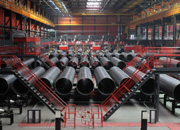 Threeway Steel is known as a professional supplier engaged in manufacturing and distributing a wide range of steel pipe, and our headquarter located the central part of China – Hunan and six associated factories throughout China.
Threeway Steel is known as a professional supplier engaged in manufacturing and distributing a wide range of steel pipe, and our headquarter located the central part of China – Hunan and six associated factories throughout China.
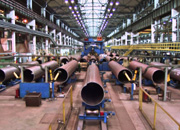 Threeway Steel is known as a professional supplier engaged in designing, manufacturing and distribution of a wide range of steel products with the headquarter located the central part of China – Hunan and six associated factories throughout China.
Threeway Steel is known as a professional supplier engaged in designing, manufacturing and distribution of a wide range of steel products with the headquarter located the central part of China – Hunan and six associated factories throughout China.
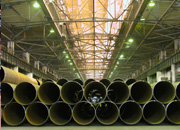 Threeway Steel is known as a professional supplier engaged in designing, manufacturing and distribution of a wide range of steel products with the headquarter located the central part of China – Hunan and six associated factories throughout China.
Threeway Steel is known as a professional supplier engaged in designing, manufacturing and distribution of a wide range of steel products with the headquarter located the central part of China – Hunan and six associated factories throughout China.
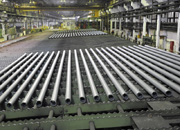 Threeway Steel is known as a professional supplier engaged in designing, manufacturing and distribution of a wide range of steel products with the headquarter located the central part of China – Hunan and six associated factories throughout China.
Threeway Steel is known as a professional supplier engaged in designing, manufacturing and distribution of a wide range of steel products with the headquarter located the central part of China – Hunan and six associated factories throughout China.
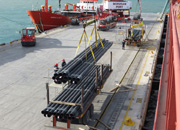 Threeway Steel is known as a professional supplier engaged in designing, manufacturing and distribution of a wide range of steel products with the headquarter located the central part of China – Hunan and six associated factories throughout China.
Threeway Steel is known as a professional supplier engaged in designing, manufacturing and distribution of a wide range of steel products with the headquarter located the central part of China – Hunan and six associated factories throughout China.

